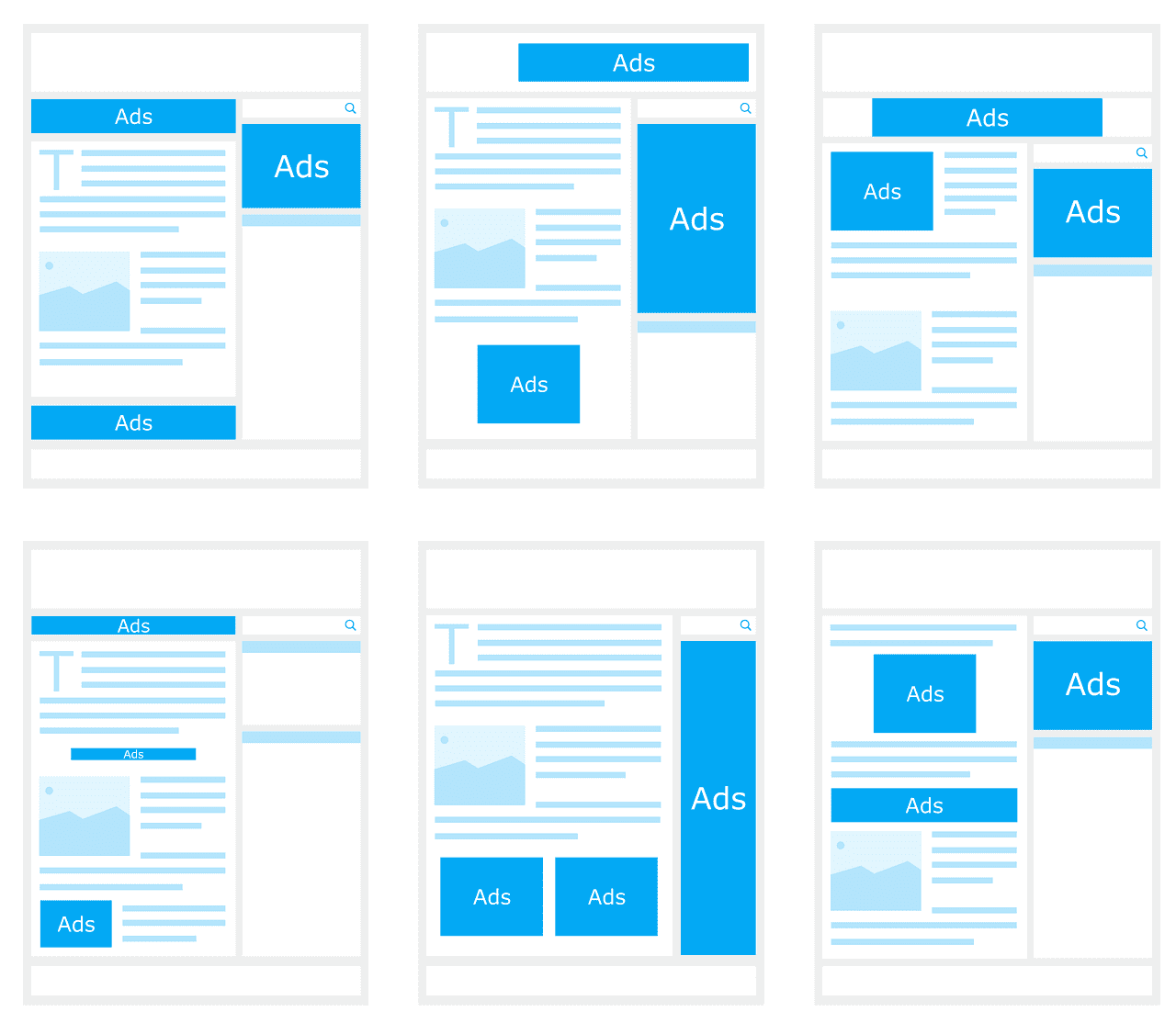While earning money is a natural goal for many bloggers, focusing solely on monetization can come later. Even with all your hard work on your blog, there are some common reasons why Google Adsense might reject your application. But don’t worry, this happens to many beginners! Today I will help you to ensure a smooth approval process. Fun fact is till now I am also not monetized. I often write my blogs with AI, and sometimes I don’t even recheck those. But I know it might be very harmful for me to get monetized. Also this site is 3 months old, I didn’t apply for Adsense approval yet. Cause it would be good for my monetization if my website is little old. You should apply for monetization once your site is 3-6 months old or there is a high chance that Google will reject your monetization request.
AI writing assistants can be a valuable tool for bloggers, but they shouldn’t replace human creativity in the long run. AI can struggle to capture the nuance and voice of human expression. Additionally, SEO concerns arise when AI-generated content unintentionally mirrors existing content, potentially leading to copyright issues. Misinformation is another risk, as AI may generate inaccurate details that could negatively impact your website’s ranking with Google.
However, AI shines in specific areas. It can be a fantastic resource for generating blog titles, checking grammar, and sparking creative ideas. Remember, Google prioritizes high-quality content, regardless of its source (as long as it’s original). So, always double-check your AI-generated content to ensure it’s unique and accurate before publishing. Now, let’s explore some other factors to consider…
Google can reject a blogging website for monetization through programs like AdSense for several reasons. Here are some common ones:
- Insufficient Content: Blogs with too little content, such as sparse articles, short posts, or underdeveloped sections, may not meet Google’s content requirements.
- Low-Quality Content: Content that is poorly written, has grammatical errors, or is not valuable to readers can lead to rejection. Google looks for original, useful, and well-crafted content.
- Duplicate Content: If your blog contains content that is copied from other sites without significant original contribution, it will likely be rejected. Google values unique content.
- Policy Violations: Non-compliance with Google’s policies, such as those regarding adult content, hate speech, violence, and other prohibited content types, will lead to rejection.
- Poor Website Design: A website that is difficult to navigate, has broken links, or is not user-friendly may not be approved. Google prefers sites that provide a good user experience.
- Lack of Privacy Policy or Contact Information: Google requires sites to have a clear privacy policy and contact information. This demonstrates transparency and builds trust with users.
- Non-Responsive Design: Websites that are not mobile-friendly or do not have a responsive design can be rejected, as a significant portion of traffic comes from mobile devices.
- Insufficient Traffic: Blogs with very low traffic might be rejected. Google wants to monetize sites that have a substantial number of visitors.
- Unverified Ownership: If you haven’t verified ownership of your website through Google Search Console or provided the necessary administrative access, your application might be rejected.
- Ads Overload: If your site already has too many ads or uses intrusive ad formats, Google might reject it to ensure a good user experience.
- Invalid Click Activity: If Google detects any fraudulent activity, such as clicking on your own ads or encouraging others to do so, it will result in rejection or even banning from AdSense.
- Poor SEO Practices: Use of black hat SEO techniques, such as keyword stuffing, hidden text, or cloaking, can lead to rejection.
- Non-Compliant Niche: Certain niches are more prone to rejection, such as those focusing on illegal activities, gambling, drugs, or misleading financial schemes.
To increase the chances of approval, ensure your blog has high-quality, original content, follows all of Google’s policies, provides a good user experience, and has a growing and engaged audience.
Things to observe
Content Quality and Originality
- Low value content: This includes thin content, which is basically content that lacks depth or doesn’t provide much value to the reader. Google looks for informative, well-written articles that provide a good user experience.
- Unoriginal content: This includes scraping content from other sources or heavily rephrasing existing content. Your content should be unique and provide your own perspective.
Website Traffic and User Experience
- Low traffic: If your website doesn’t have a decent amount of traffic, Google might not find it worthwhile to show ads there.
- Poor user experience: This includes things like a cluttered website design, slow loading times, or broken links. These can make it difficult for users to navigate your site and might reflect poorly on advertisers.
Policy Violations
- Copyright infringement: Make sure you have the rights to use any images or other content on your website.
- Prohibited content: Google bans advertising on sites with content that is violent, hateful, or promotes illegal activity. You can find a full list of their program policies https://support.google.com/adsense/answer/48182?hl=en.
Here are some resources that you might find helpful:
- Google’s AdSense program policies: https://support.google.com/adsense/answer/48182?hl=en
- Webmaster quality guidelines for thin content: https://raddinteractive.com/what-is-thin-content-understand-googles-thin-content-penalty-seo/
A question might be hitting your brain right now that “What if my monetization approval once rejected?” Calm, keep patience it’s not over yet.
A rejection from an ad network like Google Adsense shouldn’t necessarily be the end of your blog’s monetization journey. Here’s what you can do:
1. Understand the Reason (if possible):
- Check the rejection notice for any specific reasons mentioned. Common reasons include low traffic, lack of high-quality content, or content that violates policies.
2. Improve Your Blog (if applicable):
- Focus on creating valuable and engaging content consistently.
- Ensure your site has a good amount of traffic (rejections are common for new blogs).
- Review the ad network’s policies and make sure your content strictly adheres to them.
3. Reapply Strategically (if applicable):
- Some ad networks allow you to reapply after addressing the issues. Don’t just resubmit immediately. Take time to improve your blog based on the feedback (if provided).
4. Explore Alternative Monetization Options:
- Even if rejected from a major network, there are other options:
- Affiliate marketing: Promote relevant products and earn commissions on sales.
- Sell digital products: Create ebooks, courses, or other downloadable content.
- Offer premium content: Provide exclusive content for paying subscribers.
- Direct sponsorships: Partner with brands for sponsored posts or product reviews.
Here are some additional tips:
- Research different ad networks and their requirements. Some might be a better fit for your blog’s niche or traffic level.
- Consider joining online communities for bloggers. You can learn from others’ experiences and get valuable advice.
Remember, building a successful blog takes time and effort. Don’t get discouraged by a rejection. Focus on creating quality content and building your audience, and you’ll eventually find ways to monetize your blog.
Conclusion
Afterall you have to be serious about your blog writing. Like if you are regular, writing blogs by own, building your website, making it attractive, following the guidelines and more then Google may consider you as a serious person and your monetization process will be much easier. While monetization is a worthy goal, focus on building a strong foundation first. Even seasoned bloggers like myself (not monetized yet!) can fall prey to relying on AI for content creation. Remember, Google prioritizes high-quality, original content. So, let’s use AI as a helpful tool, not a crutch, and ensure our blogs are informative and engaging. Now, we’ve explored common rejection reasons, let’s dive into specific strategies to guarantee your blog’s success!



